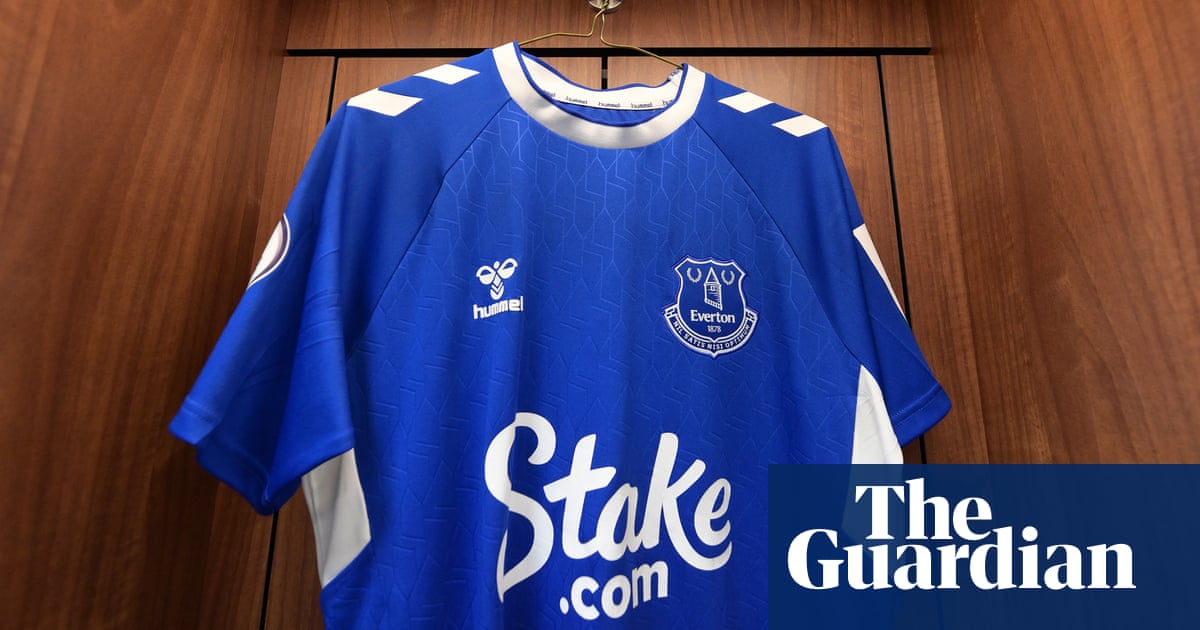Former business partner of Stake co-founders claims they used unlawful tactics to bully him out of business
Stake UK, the crypto gambling company that sponsors Everton FC, has been hit with a $400m (£346m) lawsuit from a former business partner of its co-founders, alleging they stole from him and bullied him out of the business.
According to court filings obtained by the Guardian, Christopher Freeman, a resident of Florida, claims that he was the brains behind Primedice, a predecessor company of Stake, which is now valued at more than $1bn.
Freeman claims he set up Primedice with school friend Bijan Tehrani and Ed Craven, who now run Stake.
The firm has gone from total obscurity to one of the fastest-growing gambling brands within a few years, boasting a partnership with platinum-selling rapper Drake and sponsorship deals with the Ultimate Fighting Championship (UFC) and F1 driver Pietro Fittipaldi.
It also sponsors Watford FC and is among a glut of gambling firms, many of them with no presence in the UK, that sponsor English and Scottish football.
According to Freeman’s account, which the company strenuously denies, the trio built the business together but Tehrani and Craven gradually edged him out, using bullying and unlawful tactics.
The key bone of contention relates to the origin of Stake. Freeman says it was his idea to expand Primedice into a more comprehensive crypto casino.
Tehrani and Craven, he says, claimed to be more interested in starting a traditional online casino, using “fiat” currency. In the end, Craven and Tehrani did build a crypto casino, which became Stake.
Freeman alleges the business was built using his ideas, as well as Primedice funds that rightfully belonged to him. He is demanding a full audit of Stake assets to see what he is owed, which he claims could be more than $400m.
A spokesperson for Stake said his claims were “internally inconsistent, intentionally misleading, and provably false”.
“This filing is a desperate attempt to spread false information and extort money over which Freeman has no claim,” they added.
“The company does not intend to give in to this sort of blackmail, and are confident that these utterly frivolous allegations will be dismissed by the court in due course.”
Stake.com is technically based on the Dutch Caribbean island of Curacao but is connected to an Australian business called EasyGo.
Freeman also alleges that Stake is not only aware of, but encourages, the use of virtual private networks (VPNs) by customers who want to gamble with Stake but cannot legally do so.
VPNs create a spoof location for a computer, allowing users to gamble with crypto in countries where it is not legal to do so. Freeman’s claim refers to the US. Crypto gambling is also illegal in the UK.
Sign up to First Edition
Archie Bland and Nimo Omer take you through the top stories and what they mean, free every weekday morning
Stake denied that it accepts money from bettors skirting the law with a VPN, saying it “complies with all applicable laws”.
“As with all companies in the sector, Stake experiences unauthorised users attempting to evade geoblocking through the use of VPNs,” it said.
“The company has implemented stringent compliance processes beyond simple geoblocking, including KYC [know your customer] and other anti-money laundering measures.
“As one example, customers who attempt to use VPNs to evade geoblocks would be prevented from depositing funds under KYC requirements.”
It also pointed to responsible gambling measures, such as offering customers free blocking software for people who want to stop themselves from gambling.
Last month, the Guardian reported that Everton FC told Stake to stop using club branding in a promotion offering a $10 free bet to anyone who wagered $5,000 in a month.
More than 30,000 Everton fans had earlier signed a petition urging the club to end its partnership with the gambling company.
Author
Administraroot

